Under the theme “Femtech: The $1 trillion investment opportunity,” Ulla Sommerfelt, co-founder of Femtech Studios, hosted a panel debate at TechBBQ about the challenges facing femtech start-ups in getting funding despite strong business cases.
Femtech Studio is a newly formed venture investing in femtech and women’s health start-ups. The panel discussed not only the wealth but also the health gap women worldwide still face.
“Closing the health gap would give all women worldwide seven extra healthy days in life. Women between the ages of 20 to 60, i.e., women of working age, are the most affected by the health gap and the effect that has on the income gap,” explained one of the panelists, Charlotte Ersbøll. She is a Senior Advisor with the Project Family: Safe Birth team at Ferring Pharmaceuticals, among many other roles.
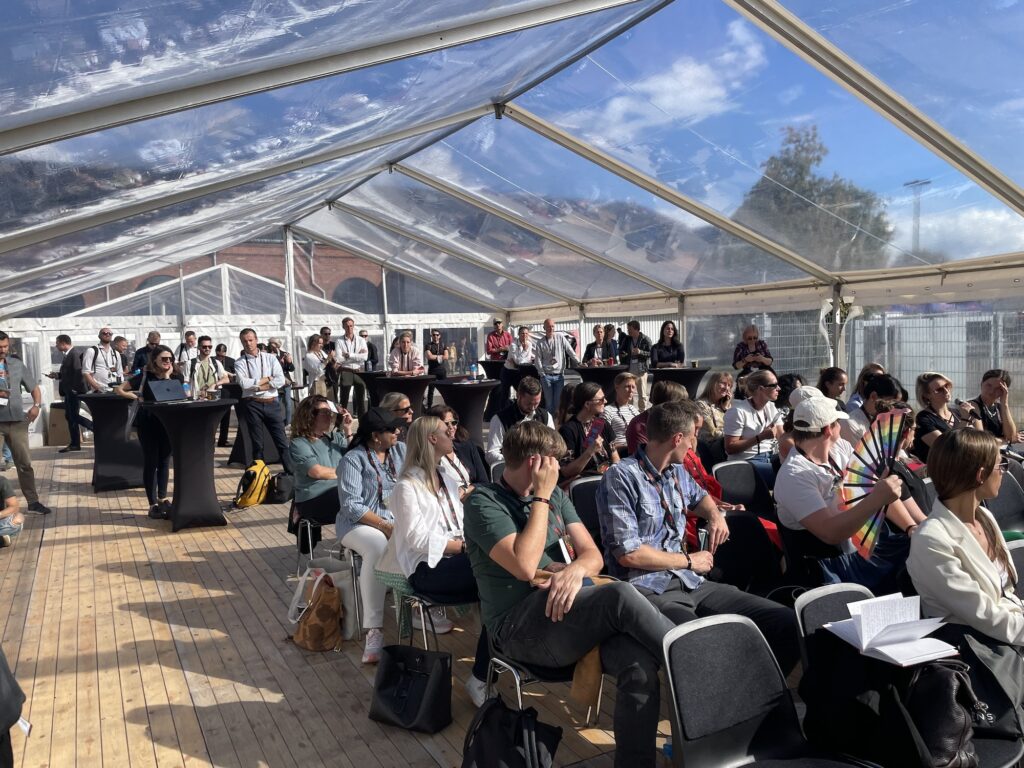
Least researched and invested in
Charlotte Ersbøll also pointed out that 56 percent of women’s health burden stems from conditions that are either more prevalent in women than men or affect women differently than men.
“Furthermore, the issues that affect the largest group of women are the ones the least researched and the least invested in, for example, menopause, premenstrual syndrome (PMS), and endometriosis,” continued Charlotte Ersbøll.
Ersbøll referred to an op-ed in Nature by her colleague Kelle Moley. She argues that women are overlooked even though, in 2024, they account for $31,8 trillion in worldwide spending and 80 percent of consumer spending in the healthcare industry.
Avoiding 24 million lost life-years
The debate theme was a McKinsey report titled “Closing the women’s health gap: A $1 trillion opportunity to improve lives and economies.” In her op-ed, Moley outlined how closing the health gap between men and women “would lead to fewer premature deaths.”
But most importantly, closing the gap could make “women avoid 24 million life-years lost due to ill health”. Consequently, the World Economic Forum founded a global alliance for women’s health for women’s health in January 2024.
Critical learnings
In Charlotte Ersbøll’s closing remarks, she highlighted what she considers the most critical learnings within the field:
“We lack gender-specific data. Therefore, we don’t know what works or why it works. The current knowledge is based on old data.”
In addition to Ulla Sommerfelt and Charlotte Ersbøll, the panel consisted of Linda Hoff, co-founder of Femtech Studios, Torsten Kolind, an angel investor in femtech, and Ida Tin, who founded the period and fertility tracker Clue in 2012. Today,
Clue is used in 180 countries. Ida Tin also invented the term “femtech” in 2016
As the only man on the panel, a spectator asked Kolind about his motivation for working with femtech:
“My mother is a medical doctor, and when I lived in San Francisco, I frequently met with Qvin -founder Sara Naseri,” explained Torsten Kolind.
Danish femtech startups are noticed
Femtech has been huge in the US and Canada for some years. Danish femtech start-ups are starting to get noticed, and they have become a subject at the Danish-held tech event TechBBQ, along with women’s health.
Technology aimed at improving women’s health and overall well-being does not only help them target their needs. Femtech is also a tool for wedging knowledge about female health into the overall health research, which previously had a deep knowledge gap about women’s health as most health research is based on men.
Uvisa Health struggles to get funding
Despite the convincing numbers that show the need for and effect of femtech start-up products, many still struggle to get adequate funding. This was discussed at the Femtech stage in Event room 3 and with the many conference participants.
“If I could get more funding, I could easily make my company much more profitable,” said one of the spectators, Ella Harris, the founder of Uvisa Health.
During both conference days, femtech start-ups were present to inform about the importance of their specific problem-solving solutions from stages and on the floor.
For example, Uvisa Health explained how the company could help women suffering from vaginal discomfort, often considered taboo. Uvisa has created a device that can cure vaginal infection without penicillin and the frequently ensuing fungus problems that lead to yet another visit to the pharmacy. Uvisa’s device offers treatment by emitting blue ultraviolet light while the device is inserted into the vagina for 30 minutes.
Sylvia Health testing device for pelvic prolapse
Sylvia Health may not be outright femtech, but the company is well into its testing phase with its women’s health device. The Sylvia Health device helps women with pelvic prolapse, where one or more organs in the female pelvis descend into or out of the vagina. More than 200 million women worldwide are affected by pelvic prolapse.
Read more about pelvis prolapse here.
Data privacy and security
One thing is to create a product that can help women take control of and improve their health. Inventors of femtech devices also have to factor in data privacy and security. Victorine Lancon, head of accelerator at Daya Ventures, talked about these crucial factors with Klaudia Mur, CEO and Co-founder of Jolint, and Malin Frithiofsson, CEO of Daya Ventures.
“Monetizing data is sensitive in femtech,” said Malin Frithiofsson. She explained that some companies may not even realize they are monetizing data. “Data privacy must be built into the SDK’s (software developer kits).”
While the panel points out that women are 75% more likely to use health apps because we don’t get adequate health advice and care, such apps can unintentionally harm their users if the data isn’t secured, the panel warned.
“Founders of health tech and apps can risk being subpoenaed in countries such as the US to give menstruation data of one or more users,” warned Malin Frithiofsson.
See also Techtruster’s coverage of data and women’s health:
Privacy and Wearables – opportunities and ethical challenges in tracking your intimate data

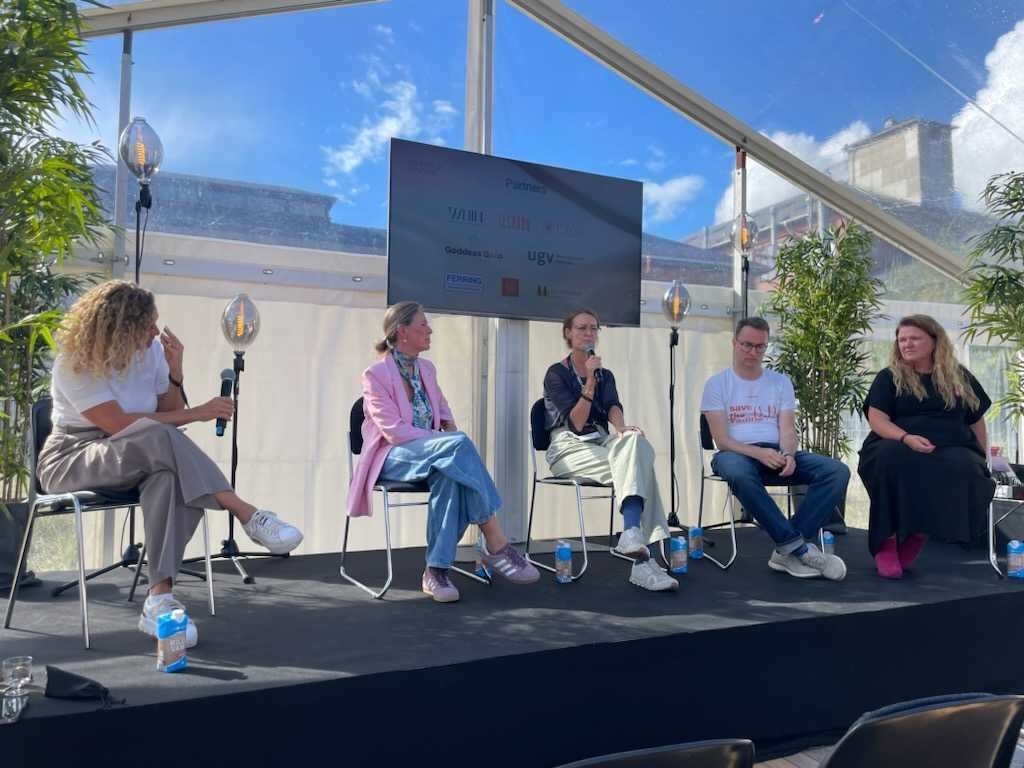


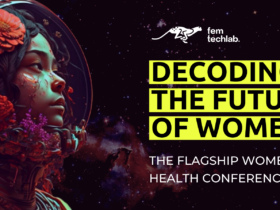






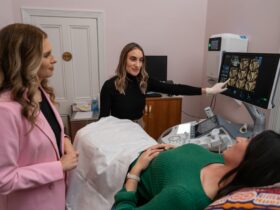
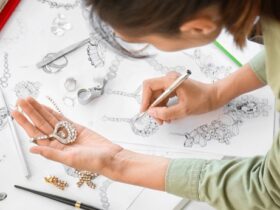
Follow us on social media